The gender pay gap: Why construction, real estate and manufacturing are lagging behind
The numbers are out – and the gender pay gap in Australia is still wide.
According to the Workplace Gender Equality Agency’s (WGEA) latest report, women earn just 78 cents for every dollar earned by men.
In construction, real estate and manufacturing? The gap is even wider.
At WIN, we see this as a chance to do better. To build fairer and stronger businesses in a sector that has the power to champion equality.
Here’s what needs to change.
The numbers behind the gap
According to WGEA’s latest report, Australia’s gender pay gap now sits at 21.8% – meaning women, on average, earn $28,425 less than men each year.
That’s a slight increase from last year’s 21.1% gap, largely due to the inclusion of CEOs and executives in this year’s data for the first time.
But the trend is heading in the right direction – with a 0.6% improvement on last year when comparing equivalent roles. So, there’s progress – but it’s slow.
And in industrial sectors, it’s even slower:
- Construction: 25.3% gap
- Real estate: 21.2% gap
- Manufacturing: 14.2% gap
These are among the highest gender pay gaps in Australia.
One key driver? Industrial remains heavily male-dominated, especially in senior roles.
The WGEA data shows men are almost twice as likely to be in the top pay quartile, while women are overrepresented in the bottom.
But change is possible, and we know many businesses are already leading the way.
What progress looks like in practice
In recent years, we’ve seen a genuine shift across parts of the industrial sector.
There’s growing awareness that equity isn’t just about salary, but total remuneration. At WIN, we’re pleased that a number of our partners are setting a new standard:
- Cushman & Wakefield has appointed several women to top executive roles globally, including ANZ CEO Noral Wild. The company has also introduced flexible work policies, inclusive hiring practices and regular pay equity reviews.
- Charter Hall is proactively addressing gender pay gaps through annual remuneration reviews and has women leading in key executive roles.
- CBRE is investing in programs to attract, retain and promote female talent at every level.
- Frasers Property has been named a WGEA Employer of Choice for Gender Equality and continues to build inclusive leadership into its culture.
- Dexus and ISPT have published gender equity strategies and aligned themselves with external benchmarks.
- Knight Frank and Greystar are driving cultural change through formal DEI policies and flexible work frameworks.
These are promising signs of progress, and momentum is building.
But for real change to happen, these examples must become the norm across our sector – not the exception.
Addressing barriers head-on
In many workplaces, women appear to be paid equally on paper. But when you look deeper – at bonuses, commissions, superannuation and leadership pathways – the picture changes.
So, what’s standing in the way of true pay parity?
Part of it stems from legacy mindsets – outdated assumptions about women’s availability, pressure tolerance or emotional resilience. These biases influence who gets offered roles or fast-tracked into senior leadership.
Then there’s the issue of recruitment and promotion.
Many organisations still favour candidates ticking every box. But this model inadvertently disadvantages women, who are statistically more likely to self-select out unless they meet all the criteria.
Often, the barriers are invisible: outdated pay systems, bias in performance reviews, and rigid work structures that penalise those with caregiving responsibilities.
So, how do we move forward?
The blueprint for change
If we’re serious about closing the gender pay gap in industrial, we need to rethink how we define work, leadership and equity.
Here’s how to start:
- Challenge mindsets: Let go of legacy assumptions about women’s capacity, availability or ambition.
- Fix pay systems: Review the distribution of bonuses, commissions, superannuation and parental leave. Close the gap in total remuneration, not just base salaries.
- Benchmark roles, not people: Base pay on the value of the role, not who negotiates hardest.
- Redesign leadership pathways: Prioritise women for roles in operations, finance, logistics and C-suite – not just in support functions.
- Back it with real support: Mentorship, sponsorship and strong peer networks are critical to helping women rise – and stay.
- Create space through quotas: Sometimes we need to shift the structure before the mindset follows. Quotas can help rebalance leadership – but real inclusion must follow.
- Shift ideology through education: Women don’t need to tick every box to be ready – and men need to recognise and acknowledge the systems working in their favour. Equity begins with awareness.
- Partner with organisations like WIN: Engaging with industry networks that champion equity helps drive accountability and fast-track change.
The legacy we’re building
Change is happening. But without further intentional action, we risk embedding a new generation of inequality.
At WIN, we’re here to create an industry that’s not only more equitable, but more sustainable, innovative and resilient.
So, here’s our call to action:
Examine your structures, pay systems and leadership pipelines. Keep pushing for transparency, accountability and meaningful reform.
Above all, speak up. Step forward. And support one another.
The future of industrial is being built right now. Let’s ensure it works for everyone.
Want to help build a more equitable industrial sector? Follow WIN on LinkedIn to stay informed, share the message – and help bring others along.
Meet our inaugural Scholarship for Women winner, Georgina Abou Hamed
Georgina Abou Hamed isn’t your average industrial property student.
She’s one of only a handful of women in her course – a sharp reminder that gender equity in our sector is still a work in progress.
But change is here. And Georgina is part of it.
As the first recipient of the WIN Scholarship for Women, launched in partnership with Western Sydney University (WSU), she’s ready to help shape the future of industrial.
Here’s what inspires her – and what she hopes to achieve next.
Finding her path – and owning it
Georgina didn’t grow up dreaming of a career in industrial property.
Like many students, she left high school without a clear plan.
‘I spent years feeling confused about where I was going,’ she admits. ‘Everyone else seemed to have it figured out – I didn’t.’
Fortunately, Georgina knew her strengths: numbers and a strong work ethic. This made a business degree the logical next step. So she enrolled in the Bachelor of Business at WSU – and discovered the option to major in property.
‘The variety drew me in,’ she says. ‘There are so many directions you can take with this degree. And for someone like me – who was still figuring things out – it made sense.’
Then came WIN’s scholarship for women, which awards recipients $22,500 over three years. Georgina applied. Got it. And things just started falling into place.
‘It felt like a sign that I was on the right track,’ she recalls. ‘And I felt committed to this career path.’
Now in her second year, she’s never felt more certain about her future.

Playing the long game
At WSU, Georgina is exploring everything from valuation to feasibility.
She’s learning the mechanics behind how properties are planned, costed and brought to life.
And while she hasn’t stepped into the industrial property world just yet, she’s already sharpening transferable skills in her current banking role.
That exposure, paired with her studies, has helped Georgina zero in on what she really wants.
‘I love looking at bigger pictures – understanding how a project comes together, how decisions are made and how value is created over time,’ she explains. ‘And one day, I’d like to run my own firm and create spaces that influence how people work and live.’
It’s a big goal. But with the support of the scholarship behind her, Georgina’s got the confidence to chase it.
Making space for women to thrive
Today, female agents comprise less than 4% of total industrial property agents Australia-wide. And while more women are studying property, the numbers still aren’t where they should be – as Georgina can attest.
‘It’s very male-dominated, and that can be taxing at times,’ she admits. ‘I would love to see more women in my course, but that’s not the reality right now.’
At WIN, we’re working to change that.
Through mentorship, education and initiatives like the WIN Scholarship for Women, we’re breaking down the barriers that have historically made industrial feel out of reach for women.
Because we see the value women bring to the sector. And Georgina agrees.
‘We bring different perspectives and ways of thinking,’ she explains. ‘I think women naturally approach problem-solving differently, and that’s so important in an industry like this.’
Georgina hopes that, as more women enter the sector, the culture will continue to shift.
‘I want to see a future where women don’t have to be the only one in their course or their workplace,’ she says. ‘We deserve to take up space.’
Empowering the next generation
As part of our mission to shift the narrative on female representation in industrial, we’re increasing efforts to:
- Engage with high school students to raise awareness about industrial early
- Partner with universities to support women studying industrial property
- Make industrial careers more visible and accessible
For Georgina, our impact has been immediate. ‘Aside from cementing my decision to pursue this path, the financial support from WIN and WSU has eased some pressure,’ she says.
Her advice to other young women considering a career in industrial?
Don’t hesitate – and don’t let the male-dominated landscape scare you off.
‘Being female makes you different,’ she stresses. ‘So use it to your advantage. Bring a new perspective and show them you’ve got what it takes.’
Georgina knows how easy it is to question your place and second-guess your voice. But she’s also learned to back herself and trust her skills.
‘Show them why you’re important – and that you’re capable and ready to do the work,’ she says. ‘Being a woman shouldn’t define how you’re seen.’
It’s time to remove barriers and create space for women to thrive in industrial. And Georgina is proud to be part of that change.
‘We need more women in the room,’ she says. ‘And I’m ready to take up that space.’
Looking to kickstart your career in industrial? Follow WIN on LinkedIn to hear about opportunities at your school or university.
Starting a family? Here’s what every industrial mum-to-be must know
Industrial is stepping up when it comes to parental leave, with real progress shaping more supportive workplaces for women.
But navigating this time can still feel overwhelming – especially with the myriad of policies out there.
Industrial leaders Stephanie Petrevski and Kate Smith share their tips for ensuring parental leave works for you and your career.
Navigating motherhood on the industrial frontline
When Stephanie Petrevski found out she was pregnant for the first time, her emotions were mixed.
‘I was nervous about what to expect,’ Stephanie, who is the National Asset Manager at Charter Hall, recalls. ‘There was no shortage of support, but I still worried about how my career would be impacted.’
At the time, Stephanie’s team was experiencing rapid growth, with more women joining the company. But balancing parenting with a rapidly evolving industrial career was still a relatively new concept, and Stephanie was one of the first in her department to go on maternity leave.
Her experience is a common one in a traditionally male-dominated sector that’s improved on parental leave – but still has progress to make.

What’s the state of parental leave in industrial?
Parental leave policies across the industrial sector have made strides in recent years. For example, benefits like 16 to 22 weeks of paid leave (depending on your employer), ongoing super contributions and childcare allowances are becoming mainstream.
At WIN, we’re proud to see that many of our partner organisations are leading the way:
- Charter Hall offers ongoing superannuation contributions for unpaid leave, as well as shorter workweeks and remote options for returning parents.
- ESR Australia provides up to 22 weeks of paid parental leave for primary carers, flexible work arrangements and a Kids at Work initiative to foster inclusivity and balance.
- Goodman focuses on flexibility, offering remote work setups and partnering with Circle In to support parents with tools for navigating family life.
- GPT offers 22 weeks of paid leave, childcare contributions and parental leave coaching, with super contributions continuing even during unpaid leave.
- TMX offers paid parental leave, along with flexible working arrangements such as shorter work weeks and adjustable hours.
While these firms are driving progress, there can be variances across the board.
As Kate Smith, Asset Manager at ESR, explains: ‘It’s wonderful to see businesses across the industry better support parents. But you need to understand the level of support you’re entitled to when planning a family.’
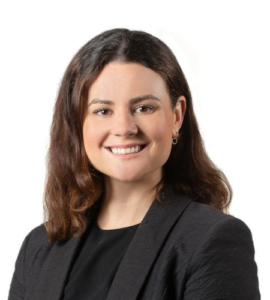
With this in mind, here are 6 proactive steps you can take to ensure a smooth transition to and during motherhood.
1. Research available benefits and support as early as you can
Starting or growing your family is an exciting chapter – and being informed about your parental leave options can help you make the most of it.
Begin by understanding your company’s policies. Look at what’s offered in terms of paid leave, super contributions, and flexible work arrangements. You might also find extra benefits through your workplace agreement or award – so it’s worth digging a little deeper.
‘Employers are becoming more open to flexible work arrangements for primary carers of all genders,’ Kate shares. ‘So, it’s important to know your workplace policies and ask questions to create a solution that is best for your family.’
And if you’re still in the early stages of family planning, it’s a great time to consider whether your current workplace supports your long-term goals. Some companies offer standout parental policies – just remember that certain benefits may come with minimum service periods. So, plan ahead, to make the most of what’s available.
With the right knowledge and a bit of planning, you can feel confident about stepping into this new season of life.
2. Ask other women in your organisation for advice
The best advice often comes from those who have lived experience. So, don’t be scared to lean on the women around you.
Seek out colleagues who have taken parental leave and ask them about their experiences. Ask them what worked, what didn’t and what they wish they’d known.
‘It’s important to have good people around you, uplifting you,’ Stephanie says. ‘So speak to the women around you who have been on the parenting journey.’
Beyond work, joining women’s networks or employee resource groups will help you build additional connections. You can ask for tips on juggling career and parenting, managing leave and making the return-to-work transition smoother. Their insights can give you an edge when talking to HR or management.
And remember: knowledge is gold. So, use it.
3. Open the dialogue with HR and your manager
Driving the conversation with your manager is essential. Don’t wait for your employer to set the tone – schedule a meeting with your boss or HR.
‘Reach out to your manager and be honest and clear on your wants and needs,’ Kate says. ‘This knowledge will help you hold a positive and open conversation.’
Share your career aspirations to show you’re in it for the long haul and discuss how the business can support your goals. Don’t rule out tailored options like job-sharing, phased returns or remote work arrangements. The more specific you are, the better.
And don’t leave it all to memory – make sure you document your discussions in case you need to refer to them later.
4. Advocate for change if your company’s policies aren’t up to scratch
Change doesn’t happen if we stay quiet. If you want better parental policies, it’s up to you to keep the conversation alive.
Start by researching best practices from top organisations and identify where your company falls short. Spot the gaps, then build your case with data and industry examples.
But don’t feel you must do it alone. Collaborate with colleagues or employee networks to amplify your message. Because there’s power in numbers.
Our tip? Frame your suggestions as opportunities that benefit both employees and the business. Win-win scenarios are far more likely to gain traction.
5. Keep in touch while you’re away
When you’ve recently welcomed a newborn, staying connected with work can be tough. But keeping ties strong can make your return smoother and less daunting.
You could do this by:
- Opting into company updates and newsletters
- Scheduling informal check-ins with your manager to keep communication open about your return to work
- Attending professional development or industry events to keep your skills sharp
Lastly, don’t forget your colleagues! Maintaining those relationships will make your transition back a natural step.
6. Join WIN
Groups like WIN are invaluable for connecting with others who understand the challenges of balancing work and parenting.
‘I received huge support through the WIN network when preparing for my maternity leave,’ Stephanie shares. ‘The women within the network, many of whom had their children when policies were almost non-existent, gave me so much advice and comfort.’
Now expecting her second child, Stephanie feels grounded and excited about growing her family.
‘I know what to expect when I return – that my career won’t be limited and the support offered is genuinely there and available,’ she says.
So, if you’re feeling a little isolated during this incredibly special time, our community can offer you the strength and insight you need to keep moving forward.
Our last piece of advice? Be strong – but also kind to yourself. Because balancing work and motherhood is often mental as much as logistical.
As Kate puts it: ‘Remember you’re not the first or last woman in industrial to navigate this. It’s hard work, but we really can have it all.’
Want to hear more inspiring stories about the incredible women in industrial? Connect with WIN on LinkedIn.
From application to offer: A recruiter’s guide to landing your dream job in industrial
It’s no secret that the industrial property sector is booming. And with opportunities expanding rapidly, 2025 could be your year to make a tactical career move.
The key to snagging that dream job? Knowing how to correctly position yourself so you rise above the rest.
We joined forces with Nikita Jenkin, Associate Director of Property Development and Marketing at Scouted Recruitment, to share our top tips for landing your next big role.
A strategic approach to career growth
The industrial property sector is experiencing a powerful surge in growth. We know that.
Warehousing, logistics and supply chain infrastructure are in high demand. And with the global market expected to be worth $131.57 billion by 2028, it’s a secure and rewarding place to expand your career.
‘If you get the chance to move into industrial or pivot within it, you should definitely take the leap,’ advises recruitment specialist Nikita Jenkin.
But competition is fierce – especially for specialist senior roles and within niche areas like acquisitions, portfolio management and development management.
So, with that in mind, how can you ensure you stand out?
First, strengthen your network
In 2025, your networking skills will be what puts you ahead of your competition. And according to Nikita, LinkedIn is where it’s at.
‘LinkedIn is like an industry notice board,’ she explains. ‘It’s where companies post available jobs, invitations to events and industry news. If you’re not on it, you’re missing out!’
The social platform also puts your experience and skill set in front of the right people, which is why hiring managers, recruiters and industry leaders often use it to seek out talent. So being active on LinkedIn is key.
‘Don’t be afraid to message recruiters directly,’ Nikita says. ‘I’ve placed candidates into roles who initially came to me through a LinkedIn message. It’s a proactive way to find your next job.’
Other strategic ways to use LinkedIn include connecting with peers, competitors and industry groups like WIN. You can also follow top and emerging businesses, engage with their posts and share industry updates.
And don’t forget to refresh your own profile! Ensuring your professional history and achievements are up to date is a good start.
Here’s how to enhance your profile even further:
If you’re an aspiring leader:
- Highlight times you’ve led initiatives, improved processes or influenced outcomes in your profile and posts. Where possible, include photos or links to showcase your impact.
- Share insights on leadership trends or innovation.
- Repost a link or achievement from other industry leaders and start a discussion on the topic.
If you’re between jobs:
- Follow industry recruiters and talent acquisition specialists at your target companies, and engage with their content.
- Connect with professionals at companies you’re interested in, engage with their posts and stay up to date with their projects.
- Post that you’re looking for new opportunities or set your profile to ‘open to work’.
If you’re shifting into industrial for the first time:
- Follow industry leaders (hint: you can find many of them in our committee!).
- Study the career paths and advice of others who’ve already transitioned into the field.
- Join relevant LinkedIn groups and RSVP to networking events. Your active and consistent interest will get you noticed!
Next, fine-tune your CV and cover letter
When applying for your next job, your cover letter and CV will be the cornerstone of your application.
They reflect your strengths, abilities and commitment to your previous roles.
And one of the best ways to stand out? An impressive and consistent career history.
‘Having managed a project from end to end gives you an edge in the development world,’ Nikita explains. ‘Especially in your earlier years, moving roles too frequently can weaken your CV over time and have hiring managers question your stability as a future employee.
‘If you’ve had multiple roles within a short time frame, make sure to address that – transparency will alleviate the hiring manager’s concerns.’
When crafting your CV, highlight your project experience in detail. Name the assets you’ve worked on, and list the specific stages of the development cycle you were part of.
‘Forget the myth of the 2-page limit for your CV,’ Nikita advises. ‘Include everything and anything that’s relevant to the job you’re applying for’.
‘But keep it readable and leave out the fancy fonts and colours – the content should speak for itself.’
In contrast, keeping your cover letter short and sharp is the way to go.
‘If you’re asked to include a cover letter, make sure it directly addresses the role you’re applying for and highlights any project experience that will be relevant to that organisation.’
Here are more CV tips from Nikita:
If you’re an aspiring leader:
- Highlight your leadership experience, including team management or mentoring.
- Quantify achievements with metrics like budgets or project outcomes.
- Express your readiness and desire for more responsibility in a personal summary.
If you’re between jobs:
- Tailor your CV to the company’s needs and values.
- Highlight your adaptability by showcasing projects you worked on that were beyond your core responsibilities.
- Include your relevant certifications, training and industry participation on your CV.
If you’re shifting into industrial for the first time:
- Explain your desire and motivation for shifting careers in your personal summary.
- Emphasise your transferable skills, like stakeholder management or problem solving.
- Enrol in short courses or certificates and list them as ‘currently undertaking’ in your resume’s education section.
How to master a job interview
So, you’ve landed a job interview for your dream role. Now it’s time to prove you’re the right fit.
Nikita’s advice is simple: be prepared, brush up on your industry knowledge – and let your personality shine.
‘Know your experience, know the company and be ready to discuss your projects in detail,’ Nikita says. ‘Understand the scope and challenges of your past projects – and be prepared to explain how they relate to the role you’re applying for.’
Nikita also recommends examining how your skills align with the company’s values and goals. To do that, research the company’s mission and recent projects to demonstrate your understanding of its priorities.
But beyond ticking technical boxes, it’s crucial to let your personality come through.
‘People hire who they like,’ Nikita explains. ‘Engage in some small talk to start and set the tone, ask your interviewer questions and don’t be afraid to show your confidence.’
And remember: first impressions matter. Arrive early, know the name of the person you’re meeting and plan your attire in advance – smart casual is often a safe bet.
Here are a few more tips to get you interview-ready:
If you’re an aspiring leader:
- Be ready to discuss times you’ve shown leadership by solving problems or influencing outcomes.
- Showcase your strategic thinking by talking about what you would do if successful in the role. This demonstrates your readiness to take initiative.
- Highlight how you manage others, and how you can contribute to the company’s long-term goals.
If you’re between jobs:
- Show your knowledge of the company. Research its recent projects, values and goals.
- Practise your interview with a friend, family member or professional mentor.
- Plan your own questions to ask on topics like culture, team dynamics and the company’s growth plans.
If you’re new to the industrial property space:
- Be ready to explain your motivations for a career shift – and how your skills or education align with the new field.
- Use examples of past achievements to show the value you can bring to the company.
- Discuss times you’ve learned new skills or adapted to challenges in new settings.
Nikita’s final tip? Work with a recruiter
It has to be said: navigating a competitive job market is just easier with a recruiter in your corner.
They can streamline the job-hunting process, offer insights into the hiring companies and often have access to unadvertised roles.
They also have relationships with decision-makers at major firms, which they can use to get you in front of the right people.
‘Working with a recruiter can really open doors,’ Nikita says. ‘You just need to find the right one for you.’
Look for someone who’s interested in your career goals and what you want in your next role. Remember, a great recruiter will not only match you with opportunities but also provide guidance on your resume, interview preparation and salary expectations.
With the right recruiter by your side, you can approach the job market with confidence – and maybe even land your dream role faster than you thought possible.
Ready to find your next role? Connect with WIN on LinkedIn to hear about opportunities at our member organisations.
Ready to jump into industrial? These courses will get you there
A career in industrial property is dynamic, fulfilling and expansive.
And with the sector enjoying accelerated growth, now is the perfect time to get involved.
Whether you’re drawn to property development, asset management – or something in between – there are plenty of pathways available to you. And they all begin with getting the right credentials under your belt.
We’ve curated a list of the top-rated courses to get you started.
Pathway 1: Development or Project Manager
In industrial property, Development and Project Managers are like 2 sides of the same coin.
Both roles are key to building industrial properties and managing the teams that bring them to life. They also work with companies overseeing facilities post-completion – whether on behalf of clients or their company’s portfolios.
But although both roles complement each other, they are distinct.
Development Managers are strategists. They oversee the entire lifecycle of an industrial project – from scoping land and securing council approvals to overseeing leasing and handover. They think big picture and ensure that the development aligns with broader business goals.
On the other hand, Project Managers focus on the nuts and bolts of bringing a development to life. Once a project gets the green light, they handle the detailed briefing, design and delivery phases. In short, they’re on top of day-to-day construction activities, managing risks and onsite challenges to ensure timelines and budgets are met.
While these roles hold separate responsibilities, their educational backgrounds closely overlap. So, if you see yourself thriving in one of these roles, here are the courses to get you there.
For undergraduates:
The Bachelor of Business at UTS will give you a well-rounded foundation in business and the practical skills relevant to both Project and Development Management.
For postgraduates:
The University of NSW’s Master of Construction Project Management is tailored for those looking to lead in property development.
Pathway 2: Asset Manager
Have you ever wondered who takes care of a company’s long-term profits? Enter Asset Managers.
In industrial, Asset Managers work for organisations that invest in real estate. Think real estate investment trusts, property development companies, private equity firms, investment funds and corporate real estate departments.
Instead of individual projects, they are responsible for the long-term strategic performance and profitability of an entire property portfolio, overseeing leasing and investment decisions to enhance long-term value and returns.
An asset manager role suits someone who thrives on strategic decision-making and relationship-building. So, if you enjoy analysing market trends, maximising property value and balancing profitability with long-term growth, this could be the career for you.
Here are the courses you need to check out.
For undergraduates:
The Bachelor of Property Economics at The University of Technology Sydney provides a solid foundation for entering the asset management sector.
The Bachelor of Property and Real Estate at Deakin University covers specialist fields, including industrial property. It’s another great starting point for aspiring Asset Managers.
If you’re more interested in property valuation and investment strategies, the Bachelor of Business/Commerce (Property) at Western Sydney University is a great fit.
For post-graduates:
If you’re a professional looking to upskill, the Master of Property Development and Investment, offered at the University of Technology Sydney and Western Sydney University, will give you comprehensive skills in asset and maintenance management.
Pathway 3: Property Analyst
If you’re interested in the financial and reporting side of property management, studying to become an Asset Analyst – also known as a Property Analyst – is a great option.
Unlike Asset Managers, who drive strategic decisions, Analysts focus on crunching the numbers for industrial property portfolios. They work for real estate investment trusts, property management firms, corporate real estate departments and consulting firms.
Their main responsibilities include market research, financial modelling and analysis and feasibility studies – all of which shape sound investment decisions.
This is a great career if you:
- Love working with data
- Have a keen eye for financial details
- Enjoy using your analytical skills to shape smart investment strategies
So, if you’re dreaming of stepping into a role like this, consider these courses.
For undergraduates:
The Bachelor of Property, Development, Investment and Valuation (Honours) at RMIT University will equip you with current technical skills while developing your critical thinking, research and analytical abilities.
Melbourne University’s Bachelor of Design, with a major in Property, is another solid option. It will teach you to understand all aspects of land and buildings, including feasibility, funding, investment potential and occupation.
For post-graduates:
If you already have a qualification and are ready to level up, check out the Master of Real Estate Investment at UTS. It’s designed for property experts who want to explore the competitive global investment scene.
Need something less specialised? Don’t overlook the Master of Banking and Finance at Monash University. This program will give you a solid grip on financial principles that can be tailored for any industry – including real estate.
Pathway 4: Sales and Leasing Agent
Property Agents are the heart and soul of industrial real estate, connecting tenants with landlords and vendors with buyers.
They showcase industrial properties, manage leasing and sales, and negotiate agreements. On top of that, they:
- Oversee marketing
- Coordinate maintenance
- Ensure regulation with compliance
Many property agents choose to work for real estate agencies, property development companies and consulting firms that specialise in commercial or industrial properties.
So, if you love building connections and closing deals, a career as a Property Agent could be a great fit. Ready to join their ranks?
For undergraduates:
Start your journey with the Bachelor of Business and Commerce (majoring in Property) at Western Sydney University.
Or, if you’re looking for simple, hands-on training, the Certificate IV in Property Services (Real Estate) from the Australian Salesman Training Co. provides the practical skills to kickstart your career.
For post-graduates:
Check out the Graduate Certificate in Property at RMIT. This program dives into management theories and property concepts across sectors.
You’ll be ready for an exciting career in industrial property before you know it!
Pathway 5: Valuer
Valuers determine the market value of assets, which underpins important property decisions. To do this, they analyse data around market trends and property specifics.
Their role also expands to conducting site inspections, preparing detailed valuation reports, and offering strategic advice on acquisitions, sales or refinancing.
Valuers generally work for commercial real estate agencies, financial institutions, valuation firms, or government bodies.
And it’s a great role for you if you have a strong foundation in property analytics, a sharp eye for detail and excellent communication skills.
Here are the courses to get you started.
For undergraduates:
The Bachelor of Property Valuation at TAFE NSW will give you valuable business and networking skills, plus a keen eye for detail.
For a broader knowledge base, the Bachelor of Property Economics at the University of Technology Sydney is a great choice.
For postgraduates:
To develop or expand on your career in property valuation, choose either the Graduate Diploma in Property Valuation at the University of Melbourne or the Master of Valuations and Property Development at Bond University.
Want to begin networking with your future industrial colleagues? Connect with WIN on LinkedIn.
Early starts, warehouses and Lululemon: A day in the life of Janet Joljian
Ever wondered what it’s like to be an industrial property agent?
Meet Janet Joljian, Senior Manager at CBRE in Western Sydney – and a rising star in her industry.
From building networks to closing deals, learn Janet’s tips for thriving in Australia’s most exciting property sector.
4.30 am
I never used to be an early riser, but 4:30 am is now my standard. And although I live with my large Armenian family, I always manage to be the first to catch the light!
After taking a few moments to fully wake up, I walk quietly to the kitchen for coffee before changing into my gym clothes. Today, it’s an all-black matching Lululemon set. It’s comfortable and feminine yet chic – everything I aspire to be.
5.00 am
Exercise is a critical part of my routine. It keeps my mind sharp and sets me up for the day, so my 5 am gym class is non-negotiable, especially because I’m a big foodie. Today, it’s cardio.
After class, I get ready for work. Presentation is everything in my industry, so I like to take pride in my appearance. Today, my fit is a black knitted dress with a matching blazer. Elegant, yet professional.
7.20 am
In the office!
I make another coffee and have a quick bite before diving into the Australian Financial Review’s property section. It’s my daily briefing on the world of real estate – and is the only news I read.
Next, I check my emails. I listed a property for sale yesterday, so naturally, my inbox is full.
8.00 am
More colleagues file into the office and we chat as they walk by.
I’m one of a few females on my team. I’m confident to mention I’ve always felt included and respected. That’s important. In fact, it’s the reason I’ve stayed at CBRE during the length of my career. CBRE exhibits a positive work environment by valuing diversity, promoting inclusivity, and most importantly, upholding principles of respect amongst peers in the workplace.
This also prompts me to reflect on how grateful I am for Women In Industrial (WIN) – and the opportunities it gives me to expand my professional network and share my industry expertise with other women in the sector.
I’m a proud member of WIN’s Agency Subcommittee, where I promote and drive agency as a strong sector of choice for all women. It’s been incredible to help create positive change for women in our sector through WIN.
8.15 am
As soon as the clock hits 8.15 am, I start making and returning calls to clients.
I specialise in the sales and leasing of high-value properties within the Metro West Sydney market. And regardless of the deal’s type or current status, I make it my priority to take action each morning.
Next, I prepare for property inspections. That means confirming times and access, printing listing sheets and building plans, confirming pricing, and reviewing any alternate options to ensure a smooth process throughout the day.
9.00 am
I jump into my car and head to my first inspection. It’s a property in Smithfield with several interested buyers.
Preparation is essential and I never arrive at a meeting unprepared. After all, every detail matters when dealing with sophisticated business owners. They’re experienced and knowledgeable, so I always need to be on top of my game.
It sounds like a lot of pressure and very fast-paced, but I enjoy it because I love connecting with people! It’s at the heart of my job.
When it comes to building relationships, I believe that consistency, transparency and providing a positive experience for clients is everything. That’s what fosters trust and strong connections.
Real estate is a long game – so keeping connections intact is key. And while phone calls are great, real relationships are built face-to-face. That’s how deals get done – not from behind a desk. My business mentor and good friend Elijah Shakir taught me that one.
12.00 pm
I’m back in the office. And after a busy morning, I’ve worked up an appetite. Always something healthy but filling.
As I’m eating, an important client calls. We’ve been working together for several weeks, and they’re on the brink of signing a deal.
But the news isn’t what I’d hoped: they’ve chosen another property.
Real estate is a game of ups and downs. Sometimes, you get knocked back – so you must be resilient and thick-skinned. Luckily, I’ve been able to manage expectations over the years! After all, most obstacles are only temporary.
1.25 pm
I’m in the car again, water in hand (Stanley cup, of course). This time, I’m on my way to metro-west Sydney to show a $600k warehouse rental to a client.
My industry is ever-evolving, so it’s essential to keep up by reading market trends and catering to specific property and client requirements. The current ecommerce boom means tenants are looking for innovative buildings in which they can utilise space to its full capacity. This means:
- High clearance warehousing
- Updated sprinkler systems
- Pallet racking capabilities
- Truck access
- Arterial connectivity
The list goes on…
I pull up to the warehouse 10 minutes early to prepare for the meeting.
Sometimes, being a young woman in this industry is tricky. I’m competing with other agents who have been in the industry for decades – which ultimately means they have long-standing relationships.
I’ve learned that clients love to deal with competent and confident people. So, that’s how I lead every interaction. I’ve also learned that being a woman can work in your favour. We’re naturally more caring and understanding – and that’s a powerful competitive edge.
But above all, I believe it’s about staying true to who you are. That’s how you gain respect in this industry. Authenticity is key, and I enjoy getting to know my clients on a personal level while always remaining professional.
2.00 pm
I’ve just locked up the rental property when a contract from a big client arrives in my inbox. I’ve spent weeks showing this client a dozen different properties, and we’ve finally settled on something perfect.
It’s a big win for my day! But more importantly, it’s an even bigger win for my client! They’ve found the perfect property to grow their business and being part of that is what I love about my job.
2.45 pm
Back in the office, I fire up the phone to chat with more clients. Many of them are mum-and-dad private business owners, and forming a strong relationship is critical to making them feel comfortable. So, I check in with them regularly to see if there’s anything more I can do to assist during the campaign or transaction period.
Next, I make cold calls to attract new business from potential vendors, buyers and landlords. Timing is everything, so I aim for afternoons when people are more receptive.
I’ve spent a lot of time on the phone today. But that’s okay because talking to people is my favourite part of the job. In fact, I’ve found that the most successful property agents are those who genuinely enjoy building relationships.
Industrial property isn’t just about closing deals. It’s about understanding people’s needs, providing value and being available to share your expertise.
3.30 pm
It’s time to start preparing for my next sale listing campaign. My team assistant helps with the preparation and delivery of marketing collateral, while I’m in charge of gathering information about:
- Building size
- Vendor leaseback
- Zoning
- Property particulars
- Competing projects
And any other general information that applies to this property. Accuracy is everything, so I always triple-check all details before we go live.
5.15 pm
Time to head home! But the work isn’t quite done. On the drive home, I make more calls, updating owners on the day’s progress.
This is typically how I end my workday.
6.00 pm
I’m home, meaning it’s time to disconnect from work. But today, there’s an urgent email that I just can’t leave until tomorrow.
Balancing work and my personal life can sometimes be like walking a tightrope, but it’s necessary to be a successful property agent. The key is to make time to rest so you can flourish during the year’s busier periods.
7.00 pm
After dinner, I sit down with my family with a chai tea and switch on Netflix. Our current obsession? Love is blind UK.
Family is important to me and making time to connect with my loved ones keeps me happy and healthy.
9.00 pm
Time for bed. I say a prayer, then climb between the sheets, thankful for my life, my family and my closest friends.
Want to hear more about what it’s like to work in industrial? Connect with WIN on LinkedIn.
From the farm to the boardroom: Meet Noral Wild
Noral Wild’s rise to Chief Executive at a leading global real estate firm is nothing short of remarkable in a traditionally male-dominated sector.
Her passion for property sparked from intense childhood Monopoly marathons with her siblings. Now, as leader of Cushman & Wakefield’s Australia and New Zealand operations, she’s living that love – while championing innovation, equality and sustainability at the highest level.
We asked Noral what it takes to succeed in industrial and how to support other women in rising to the top.
A career and passion inspired by family
Noral Wild’s journey from her roots in rugged country Australia to city boardrooms has been far from conventional. And far from simple.
Growing up on a farm in rural NSW, her fascination with property began with a nostalgic childhood pastime: Monopoly.
‘I had highly competitive Monopoly tournaments with my siblings that lasted for days,’ Noral laughs. ‘My interest in real estate started way back then.’
At 18, Noral embarked on a new life in the city, which marked the beginning of an exciting career journey. Not in property – but in archaeology.
‘I didn’t even know that you could get a Property degree,’ she explains. ‘But when I discovered that they did indeed exist, I switched focus. I realised that I’d finally found the career path that genuinely interested me.’
The industry was fiercely male-dominated at the time. But Noral refused to be deterred, crediting her initial attitude to her two grandmothers.
‘They were great examples of progressive, strong women. Because of them, I never considered gender to be a barrier to anything I wanted to do,’ Noral shares.
Noral’s journey to the boardroom
Noral began her career as a Property Trust Analyst at JB Were. After which, she quickly rose through the ranks at EY and JLL.
At the same time, she ran her own niche construction company, which provided important lessons in her journey towards leadership. In particular, she learned about the tight margins builders faced – and discovered a passion for sustainability.
At every step, there was an opportunity for growth. But the lessons weren’t always easy.
‘The pivotal moments in my career have also been the hardest,’ she explains. ‘They are the times that have helped move me forward the most.’
Along the way, Noral had no shortage of managers to help her thrive professionally. She considers them as crucial to her advancement as a woman in the industry.
‘My managers gave me opportunities and trusted me to do my job – all while providing lots of support along the way,’ she says.
‘This included supporting me to work flexibly when I had my children and wanted to keep working full time. They trusted me to work from home, which at the time, was uncommon.’
A bold leap to Cushman and Wakefield
After 12 triumphant years at JLL, a new opportunity beckoned at Cushman & Wakefield: the role of International Director, Head of Alternatives for the Asia Pacific region.
It was an offer Noral couldn’t ignore.
‘The company’s commitment to innovation and collaboration, as well as its inclusive culture, drew me in,’ Noral explains. ‘It’s a younger company that thinks like a start-up, supported by the benefits that come with being part of a global organisation.
‘Plus, I’d have the opportunity to expand my horizons in a company with a forward-thinking approach to property – and a diverse portfolio of services.’
In her new role, Noral used her impressive expertise in Alternative Investments – a growing sector that includes student accommodation, healthcare, childcare, build-to-rent and specialist disability centres.
But in March of this year – less than six months after taking on the position – Noral was elevated to an even higher role: Cushman & Wakefield’s CEO of Australia and New Zealand.
‘I couldn’t bypass the opportunity to drive strategic initiatives, foster growth and shape the future of the company in a vibrant market,’ she explains.
‘The rapidly evolving nature of Australia and New Zealand’s real estate industry is exhilarating!’
Women leading the way in industrial
The rise of women at Cushman & Wakefield is strong.
Noral’s appointment as CEO coincided with her colleague Natalie Craig’s promotion to head of the company’s Singapore chapter. And globally, it’s led by CEO Michelle Mackay.
This level of female representation at the executive level sets Cushman & Wakefield apart within the industrial property sector.
‘Our appointments send a clear message to women that their voices, experiences and contributions are valued and recognised,’ says Noral. ‘And it reinforces the message that there are no limits to what women can achieve.
‘By having women in key leadership positions, we’re not just inspiring and empowering the next generation of female professionals. We’re fostering a more inclusive workplace culture that benefits everyone.’
Noral’s vision for the future of industrial property
Cushman & Wakefield is growing its female talent pool by nurturing internal talent and providing pathways to brokerage positions.
Noral is eager to continue that approach.
While she acknowledges historical barriers have deterred women from pursuing a career in industrial, she says the company is providing a supportive platform for women.
‘The underrepresentation of women in the industrial property sector can be attributed to several factors, including historical gender biases, cultural norms, and structural barriers within the industry,’ Noral explains.
‘To tackle these issues, leaders need to push for more diversity, equity and inclusion. They should also offer mentorship, support networks and chances for professional growth.
‘This will encourage more women to enter the sector.’
Cushman & Wakefield recently became a WIN member organisation, a partnership that Noral considers a significant step forward in fostering gender diversity.
‘By partnering with WIN, Cushman & Wakefield can actively engage with a network of talented and ambitious women.
‘We’re excited to provide mentorship and professional development opportunities – and support WIN’s efforts to advocate for greater diversity in the sector.’
Want to hear more inspiring stories about women in industrial? Connect with WIN on LinkedIn.
Words of wisdom: The best career advice we’ve ever received
A little advice from a trusted mentor can really pack a punch, particularly for those just starting or changing their career.
So we asked five successful WIN committee members to tell us the best piece of career advice they’ve ever received – and how it’s influenced their professional journey.
What they had to share makes for an inspiring and motivational read.
Stephanie Petrevski: ‘Be authentic’
‘The best career advice I’ve ever received is to always be authentic,’ says Stephanie Petrevski, National Manager of Asset Services at Charter Hall.
‘A male mentor said that to me when I started at Charter Hall 8 years ago – and it was a bit of a lightbulb moment.
‘When I first started out in industrial, I found it hard to fit in. I was the only woman in meetings and often found myself in the middle of conversations I couldn’t relate to, usually about golf or footy!
‘This mentor helped me realise we all bring individual interests and skill sets to the table, and I shouldn’t feel pressured to be one of the boys. Diversity of thinking is key. That’s why it’s so important to get more women into this sector!

‘Now, I’m confident in the value I bring to the team and have been able to build strong, genuine relationships with my colleagues and external stakeholders discussing topics we all enjoy.
‘I’ve paid that advice forward many times. I do a lot of work with students on behalf of WIN, and I always encourage them to follow their passions and be proud of who they are.’
Sass Jalili ‘Differentiate yourself’
‘I was once told it’s a good idea to find a niche for yourself,’ says Sass Jalili, Head of Industrial & Logistics Research Australia at CBRE. ‘I’ve found that to be true.
‘When you finish uni, you don’t really know how many different jobs are out there. So, it’s worth researching a range of industries early on and diversifying your educational background.
‘To use my experience as an example: I did a bachelor’s degree in economics. But when I graduated, I realised there must be thousands of economics students across the country all applying for the same jobs, so I decided to complete a master’s in something more specific.
‘I eventually settled on supply chain logistics – a field I hadn’t heard of before. It was a bit of a risk, but it served me well because it equipped me with a specialised skillset that set me apart from my peers.

‘If you’re just starting out, my advice is to explore lesser-known industries and find a niche that interests you. Educate yourself on how that field operates by reading industry reports and investigating the big companies in that field.
‘Then, connect with relevant people from those companies on LinkedIn. See if they’d be willing to hop on a call so you can learn more about the industry and what you need to do to break into it.
‘If you get that far, make sure you’re prepared. You want to demonstrate that you’re informed and proactive.
‘You never know – if you make a good impression, they might think of you when a role comes up in their team.’
Camilla Bradley: ‘Stay curious’
‘Some advice that’s stayed with me over the years is never stop learning,’ says Camilla Bradley, Executive Funds Management & Capital at LOGOS Group.
‘We’re told to study hard at university, but what about after? Staying curious throughout your career allows you to adapt and develop your thoughts and ideas.
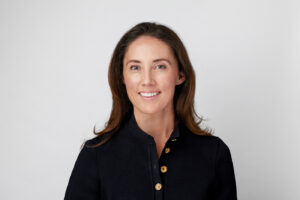
‘Not all learning has to be structured. You can upskill in many ways, and the pathway doesn’t need to be linear. For instance, my curiosity about Global Capital Markets led me to work overseas in London. Here, I gained practical experience and built long-lasting professional relationships.
‘I also think it’s important to listen. Most successful people I’ve known do more listening than talking.
‘I sit on the WIN schools and universities subcommittee and encourage students to be proactive about learning and get as much experience as possible.’
Maria Russo-Fama: ‘Be courageous’
‘My mother always told me to be courageous,’ says Maria Russo-Fama, Director of Client Services for Australia & New Zealand at Cushman & Wakefield.
‘When I started out in construction, it was a tough time to be a woman in the industry.
‘There wasn’t a huge volume of work around and the men already working in the field were very territorial. But my upbringing gave me the courage to try, fail, learn and grow.
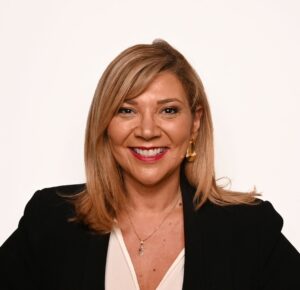
‘I persevered and worked hard to learn the technical skills I needed. In the end, that paid off – I did a good job and earned the respect of my peers.
‘When it was time to make the move to corporate, I carried that philosophy forward. I was scared to make the transition, but I knew it was the best move for me and my family, so I made it work.
‘That’s the best advice I could give to anyone facing a career challenge.
‘Be brave and just go for it!’
Mandy Spek: ‘Don’t be afraid to fail’
‘My first boss taught me that it’s okay to fail, which was such an important lesson,’ says Mandy Spek, Asset Manager at ESR Australia.
‘I’ve always been a perfectionist. But I think that’s normal for most people starting out in their career – because you want to make a good impression.
‘When I started in property, I delivered a project presentation to a fund manager who found a discrepancy in my financial calculations. He talked me through where I’d gone wrong and asked me to do it again.
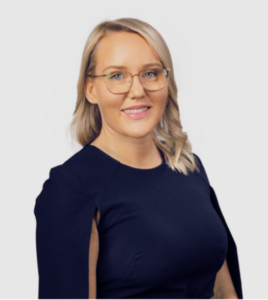
‘I felt really bad about it. But he assured me that we learn far more from our mistakes than our successes. Ultimately, it was worth making that mistake early on so I could learn what not to do moving forward.
‘From that moment on, I internalised that message. I’ve learnt that failing is an important part of success because it allows you to develop a more holistic skillset.
‘Everyone’s scared of making mistakes, but that’s where growth comes from.’
Want more career insights? Follow WIN on LinkedIn to hear from women thriving in the industrial sector.
How to start working in industrial: A guide for women at every career stage
A career in industrial is many things. Collaborative. Dynamic. Rewarding.
So it’s no wonder more and more women are turning to the sector – either to kick off or switch up their careers.
We sat down with Jessica Topelson – Development Manager at Vaughan Constructions and WIN committee member – for her insights on how to get into industrial at every stage of your career.
But first, what kinds of roles are available in industrial?
‘Industrial’ is a banner term for numerous industries, roles and career pathways, like:
| · Portfolio, property or asset management
· Capital works or construction · Analytics · Architecture and design · Marketing |
· Business administration or development
· Development management · Contract administration · Bid management · Sustainability |
Understanding all the pathways industrial includes may take some time. But one thing is clear: it’s integral to the economy. In other words, it’s only going to grow.
This makes industrial a secure, stable industry to forge your career. And with ample opportunity to ascend to leadership roles – plus the growing demand for women in the sector – now’s the perfect time to join.
‘The industrial sector continues to be one of the best-performing property sectors in Australia and globally,’ explains Jessica. ‘We’re seeing a lot more women choosing to come into industrial.’
So, whether you’re just starting your professional journey or want to make a mid-career switch, let’s explore how to make the move to industrial.

High School Students
Jessica believes that high school is the perfect time to build foundational industry knowledge, get hands-on experience – and explore tertiary pathways to help you, or the teenager in your life, reach employment goals.
‘It’s crucial to engage with girls from Year 10, as this is when they’re selecting their subjects – which will determine their tertiary pathways,’ explains Jessica.
‘At WIN, we work hard to educate girls in interactive ways about the rewarding positions they can aspire to within this dynamic industry.’
Here’s how to get started:
- Find work experience in an industrial company. Get a real-world preview of your potential career through work experience – before committing to tertiary study.
Not sure how? Jessica has you covered. ‘Check out WIN’s list of industry partners. Your careers adviser can help you draft a work experience application at one of those companies – and get it into the right person’s hands.’
- Embrace extracurricular programs and events. Your school is likely registered for experiences that show what it’s like to work in industrial – including career expo trips and programs such as Girls in Property. So, find out what’s on offer. And sign up!
- Consider vocational training. Eager to jumpstart your career and develop core skills early? Consider vocational study in a subject like project management alongside your regular schoolwork. After all, these core skills are essential to your success in every
- Plan your degree pathway. Many roles in industrial require a tertiary degree. So, in years 10 and 11, find out which degrees will get you where you want to go. Also, be sure to learn what prerequisites you’ll need for each before you lock in your subject choices.

University Students
Uni is the perfect launchpad for your career – with its mix of theoretical and practical learning. But there are several ways you can take that process one step further:
- Apply for a cadetship program. You’ll get the chance to practise key technical and soft skills as you learn them. You might even get paid or have some of your degree fees covered by your host company.
- Apply to intern at your dream company. An internship is a surefire way to demonstrate your commitment, skills and passion. Plus, it’ll give you a foot in the door for any entry-level positions that open at your host organisation. See WIN’s list of internships for vacancies in your state.
- Participate in industry-related competitions, projects and events. Many companies and associations – including WIN – host or sponsor initiatives that allow you the opportunity to hear from experts, apply your skills and meet mentors. So ask your lecturers what’s on offer. And follow the LinkedIn accounts of potential employers to get a heads-up on new events.
Jessica has one last tip for university students gearing up for a career in industrial.
‘Your job titles might change throughout your career, but some transferrable skills are always in demand. So always say yes to opportunities to become adept at communication, networking, negotiation, problem-solving and time management.’

Graduates
The transition from academia to the industrial workforce can be nerve-wracking. But with the right preparation, it can be exciting too.
To set yourself up for your first year out of study:
- Update your resume and LinkedIn profile. Make sure these are ready to share as soon as your dream grad role opens for applications.
- Apply for graduate programs. Look for programs that offer a clear development pathway and are well supported by senior staff. Your program should be practical and challenging. Jessica says Vaughan’s Constructions graduate pathways are a good reference point.
‘Our programs are built around structured career pathways,’ explains Jessica. ‘We incorporate lots of real-world experience with all the necessary training to help our graduates move up the career ladder in a considered, sustainable way.’
- Leverage your internships for full-time positions. You may be lucky enough to receive a job offer during your internship. But if not, make sure you get back in touch with your mentor at graduation to let them know you’re looking for your first role – and would appreciate any introductions or referrals they can make.
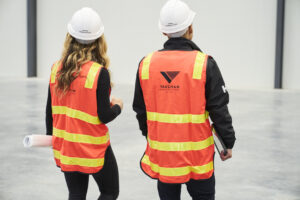
Mid-career Professionals
Got a few years’ experience in another career under your belt – and want to make a switch to industrial? Jessica says it might be easier than you think.
‘You may not have all the technical skills just yet,’ explains Jessica. ‘But your years of transferrable skills will give you an edge when breaking into industrial.’
To make the switch, Jessica recommends:
- Connecting with women already in industrial. Ask what their work is really (We don’t think you’ll be disappointed!) You can also ask them to suggest roles that suit your existing skillset – or offer advice on what skills you need to develop to make the shift.
- Upskilling to fill your talent gaps. Through networking – and online research – you’ll quickly understand what certifications you need to get into your dream role. Then plan to get those qualifications in a way that suits your lifestyle, like online part-time study.
- Leveraging transferrable skills and experience. You may not be able to get that fund management role just yet. But you can use your transferrable skills to apply for more accessible roles while you earn your qualifications. As a bonus, you’ll start building your profile at your new company – and fostering relationships with the people in your dream team.
Want to know more about what it’s like to work in industrial? Connect with WIN on LinkedIn.
‘It’s a no-brainer’: Meet the man on WIN’s committee
Women in Industrial (WIN) was born to highlight the remarkable achievements of women in the sector – and inspire more women to join and stay.
So why involve men in a committee that’s focused on female inclusion?
We spoke to WIN committee member Jack Hansen to find out.
From observation to advocacy
For Jack Hansen, Development Manager at Charter Hall, being surrounded by successful women is nothing new.
‘I was raised by strong women,’ he explains. ‘Two of them – my mum and sister – always worked. So, for me, the idea that a woman can be professionally and personally successful is completely normal. I never thought twice about it.’
Thanks to his experience, Jack knows that achieving gender equality in the workplace isn’t ‘nice to have’. It’s vital. So when the opportunity arose to join the WIN committee, he didn’t baulk.
‘I was immediately impressed with WIN’s work,’ explains Jack. ‘I knew that if I joined, I’d have a chance to engage with new perspectives and opinions – which I find exciting. It was a no-brainer!’

Allies of the best kind
What role can men play in an industry body led predominately by women – for women?
For starters, they can use their relationships with other men to personally advocate for change.
Jack explains: ‘Being male, I don’t think it’s my place to sit and pontificate about what I see as the challenges women face in industrial. But I can listen and learn from my female colleagues – then add to the narrative to inspire men and women to support WIN’s cause.’
Men can also use their titles’ power to act as influential allies – advocating for more women in leadership and improved family leave policies to executive suite decision-makers.
‘I often share the changes we’ve made at Charter Hall in our remuneration, leave and development structures with other leaders. And simultaneously, educate them about the urgent need for change using the findings from WIN’s agency report.’
At the other end of the career spectrum, men can use their experience to educate university students – especially women – about industrial’s dynamic career pathways.
‘Attracting women to industrial is difficult as it has a reputation for being traditionally male-dominated,’ Jack explains. ‘So, creating awareness of industrial as a great career pathway for women is important.’
But there’s one other crucial reason Jack loves engaging with university students: ‘My team at Charter Hall is full of intelligent, accomplished women. I learn from them every day.
‘I can share that experience with students – and let them know that being in a team with a range of skills and perspectives makes you better at your job.’

More than morals
For Jack, championing diversity in the workplace isn’t just about doing the right thing. It’s about good business, too.
‘When I first entered industrial, I noticed a lack of women,’ he explains. ‘And that made me question how accurately we were serving our customers. After all, 50% of the population is female. How can we design facilities that cater to them if we don’t have female perspectives in our teams?’
Diversity is also a cornerstone of innovation. Something that Jack is acutely aware of.
‘Doing the same thing repeatedly stifles innovation. And innovation is essential for keeping your business competitive.
‘Your company is missing out on a massive pool of potential by focusing solely on men.’
So, if your workplace’s gender balance needs addressing, where can you start?
‘You must actively decide, as a business, to appoint more women,’ Jack advises. ‘And once that critical decision is made, you must take the time to understand the barriers that prevent them from entering and thriving in your business. Then make a plan to address them.’
Want to encourage more women to join your industrial property agency? Discover how with WIN’s report, Through the Looking Glass.




